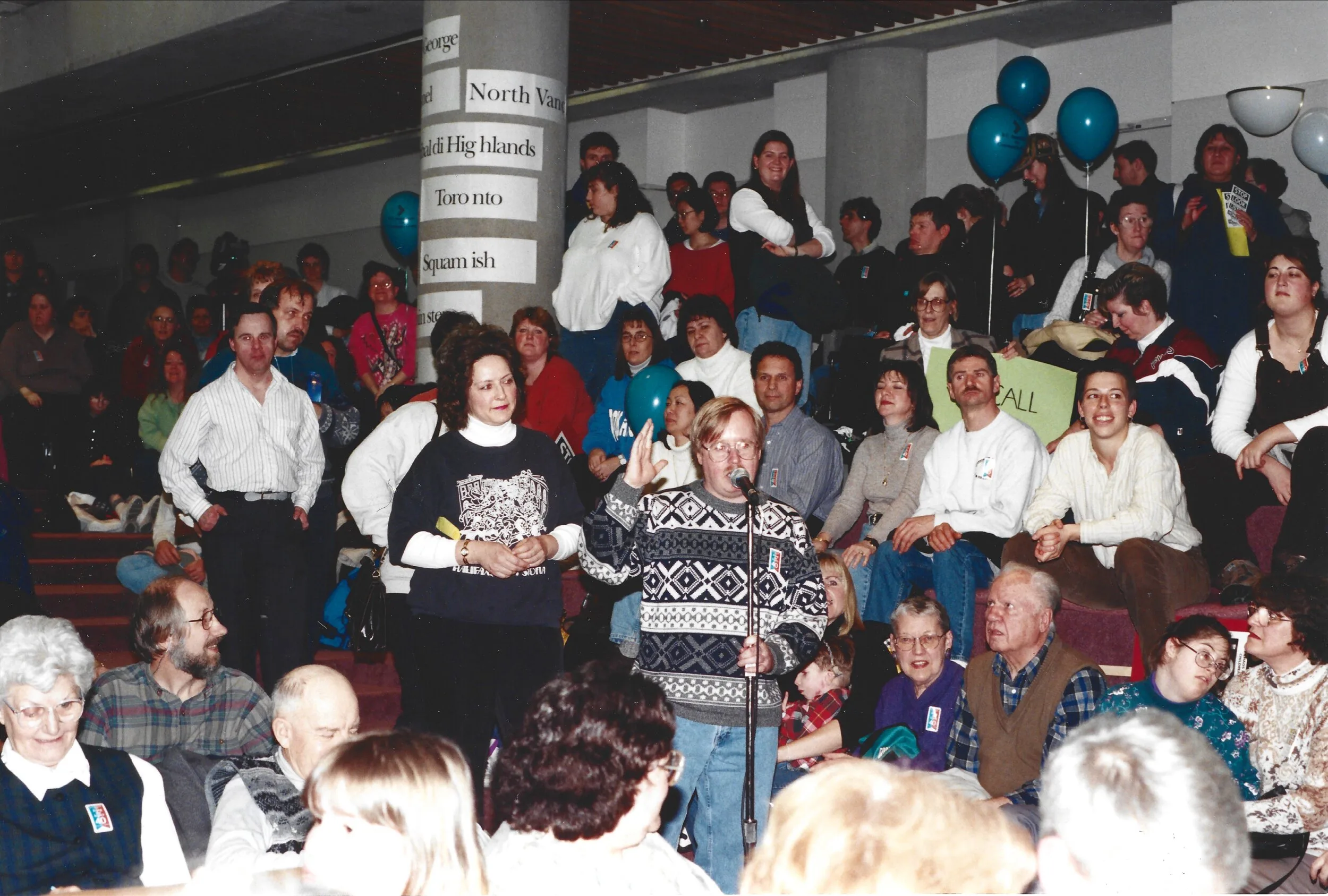Started by Determined Parents, Guided by Lived Experiences
Today, Inclusion BC advocates for equal rights and opportunities for people of all ages with intellectual and developmental disabilities. Our organization originated from a group of frustrated and passionate parents in the 1950s, whose children with disabilities were systematically excluded from the public school system.
In the early ‘50s, many parents struggled to find ways to educate their children, who had been labelled “mentally (r-word).” These parents firmly believed their children were capable of learning, despite general thinking to the contrary at the time. They believed their children had the right to develop their personal potential, just like other children. However, the public school system refused to take any responsibility for educating children with intellectual and developmental disabilities.
In May 1954, Dr. Donald Paterson, a consulting paediatrician for the Handicapped Children’s Registry, called a meeting of all persons “interested in the advancement of mentally (r-word) children.” That meeting brought together representatives from six parent groups, three government departments (Mental Health, Health, and Education), the Metropolitan Health Committee, and the Vancouver School Board. This meeting laid the groundwork for what is now called Inclusion BC.
In 1955, Inclusion BC was officially formed—at the time, it was called the Association for (R-word) Children. By 1959, this fast-growing organization had begun providing yearly briefs to the B.C. government, had special education introduced into teacher-training, and saw important changes made to the School Act.
A pediatric journal of the time stated, “Much of the credit for … this important movement belongs to the parents of (r-word) children, who, because of their persistence, perseverance and courage, have shown the way.”
While the language around intellectual disabilities has evolved, the feeling behind this statement still rings true. Without the tenacity and vision of these pioneering parents of children with intellectual disabilities, it’s hard to imagine where we would be today.



